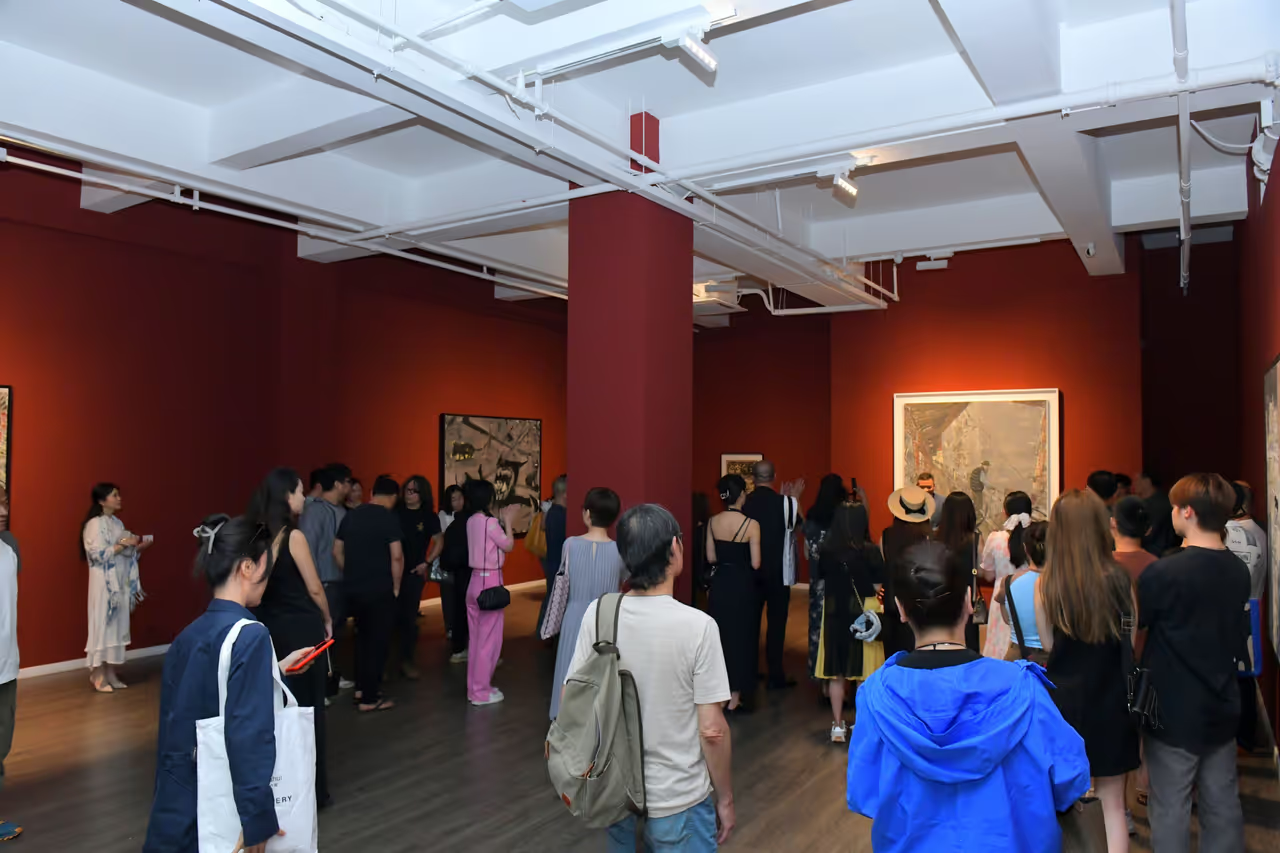
Concerns about the fate of painting first arose during modernism, and even today, questions persist about the meaning of painting's existence. Indeed, when painting becomes a mere decorative fabric, when the hands applying color fail to convey inner tremors, and when viewers cannot perceive the artist's humanity before a painting, painting may appear to have died. Ultimately, it is the inner needs of humanity that demand painting. As a painter, Mao Xuhui remains concerned with the human condition. He continues to express the sensitive and complex neural vibrations through the act of spreading paint on the canvas. In essence, he uses his inner world as the subject of his paintings. According to him, the task of painting is to explore the self: "I have been continuously paying attention to this person, trying to find something interesting from him."
In "Winter Corridor," there is an elderly figure, which can be understood as the artist himself or our generation. Similarly, it can be perceived as an individual standing at the edge of the corridor, representing a soul resting amid ruins.
